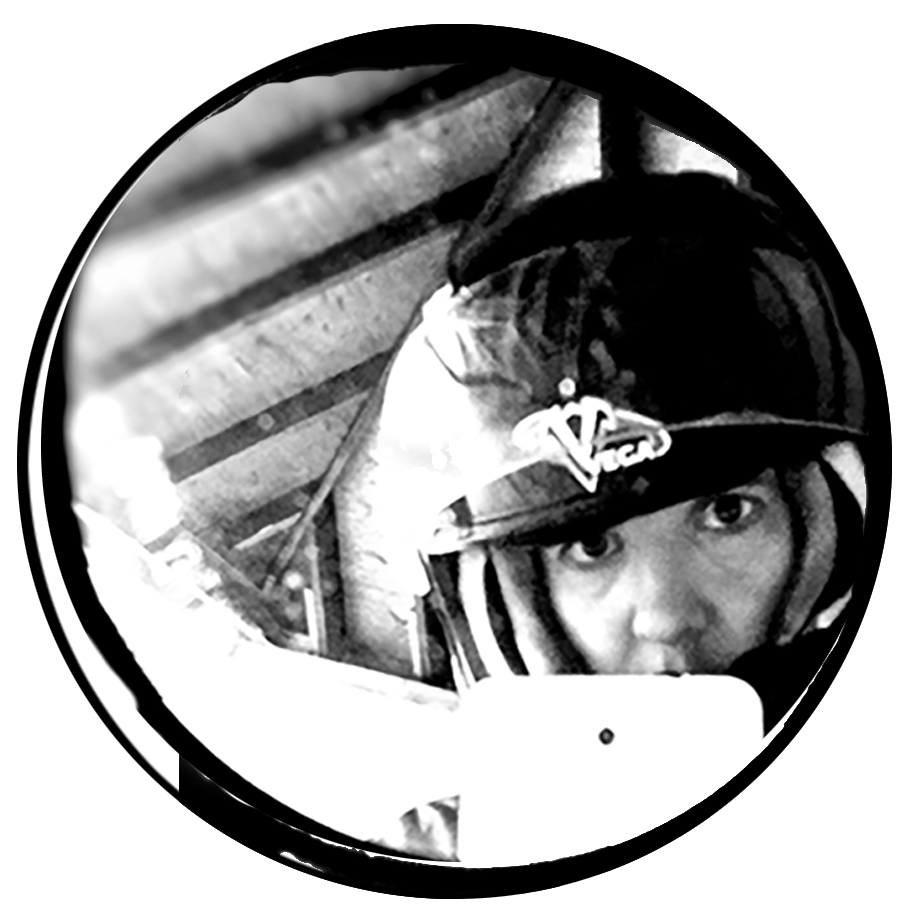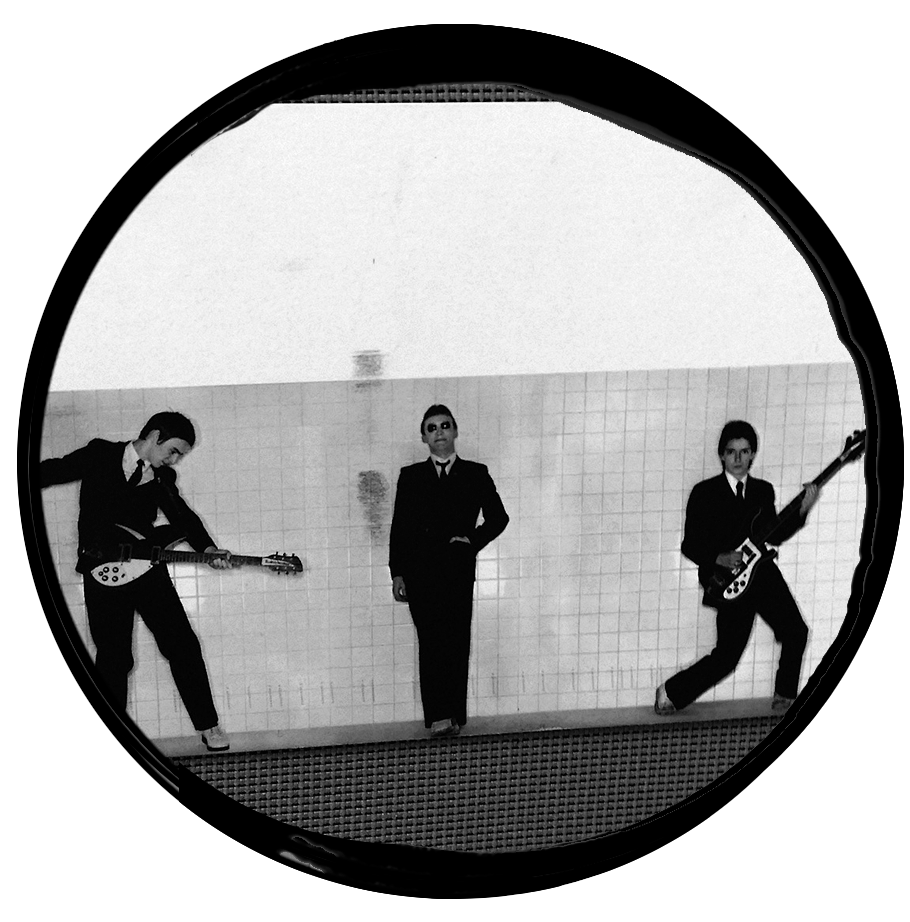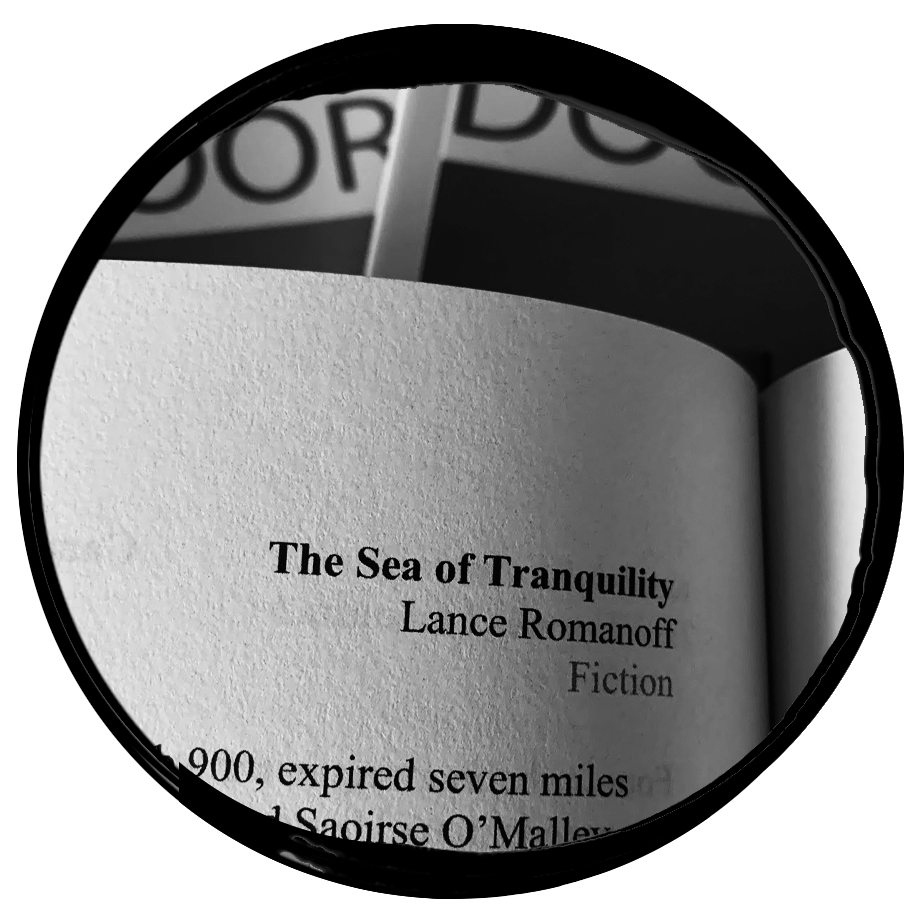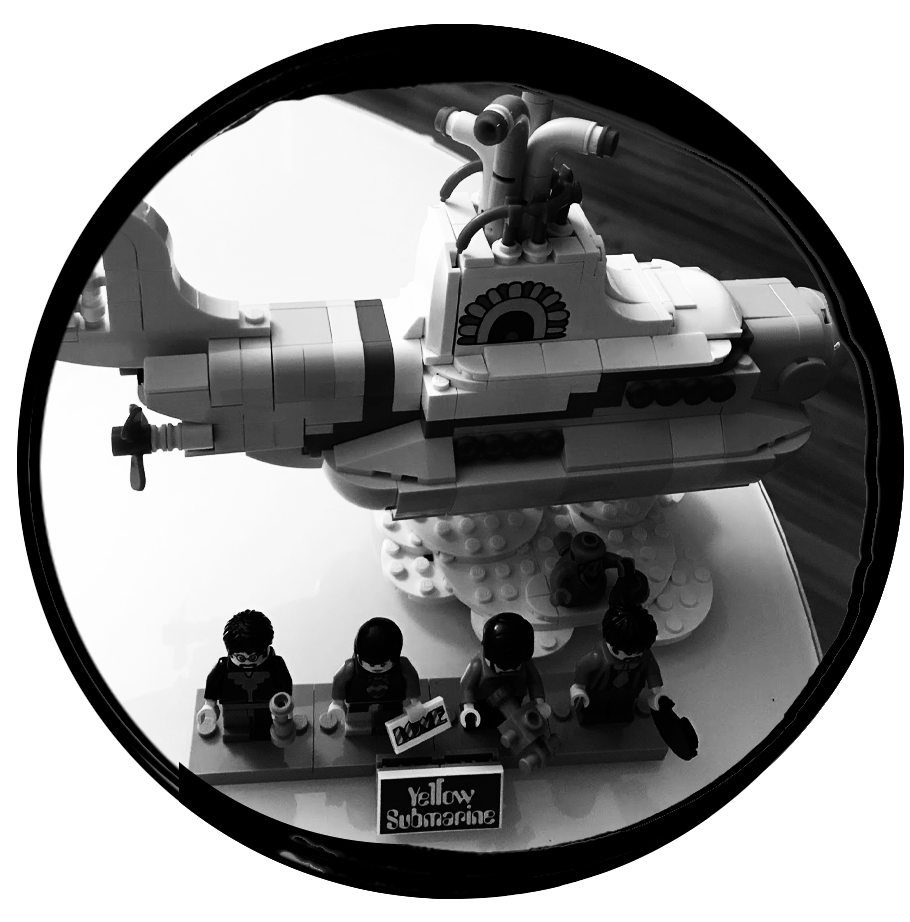Isn't it Good?
Michael Mora spent most evenings cradled inside an overstuffed leather chair with a cup of black coffee and several battered hardcover books. He wasn’t a collector, nor was he fussy about his books – he just needed the company of words. A worn paperback satisfied him as easily as a leatherbound first edition. Many books in his menagerie wore clues of their past lives in the notes written in margins by previous owners or stamps identifying them as the property of some public library.
When Mora was younger, he’d make a weekly ritual of digging through the classics and history sections of several used bookstores. Now he ordered online.
Calling his book collection a library was generous – he kept his books in piles that overflowed the small table adjoining his chair. Other books were scattered around his sitting room. Every surface had its own small tower of worn volumes. His restlessness sent him from book to book most nights. It was a victory for him to gather enough concentration to read anything start to finish. But he tried. Sequestered away from the world and putting his work aside, Mora whiled away his nights in solitude.
Once a month he attended a book club in a café called Barber’s. The owner, a Turkish immigrant named Davutoğlu, chose Barber over his own name believing it would be easier for customers to remember and because the coffee shop’s space was formerly occupied by a hair salon. Barber’s consisted of two rooms divided by a kitchen and counter space, each illuminated in soft reds and oranges. The walls were decorated with Turkish tapestries and faded sepia prints of nineteenth–century Ottomans. Mora typically did not enjoy coffee shops, or anywhere other than his own home, but he grudgingly held affection for this place. He could sit in Barber’s twelve nights a year and discuss a novel without feeling as if he were an unwelcome guest.
Mora wouldn’t call Davutoğlu a friend. They had little in common. But Davutoğlu was generous with stories about his childhood in Turkey and how he found himself in America. His parents were doctors who sent their children overseas to be educated; neither he nor his brother in Germany returned home. After thirty years in their adopted countries, the Davutoğlu brothers struggled to understand each other when they spoke on the phone: their Turkish had acquired accents that failed to match. Davutoğlu couldn’t understand how a man of Mora’s age had no wife and family, and often told Mora this. Davutoğlu eagerly embraced American culture, but he could not abandon the notion that men should be husbands and fathers.
Mora often arrived at Barber’s early on book club nights to catch up with Davutoğlu.
"Good evening, Michael! What are you reading this month?"
"It’s called Our Year Somewhere. It’s essentially about – I don’t know – unhappiness and making poor choices."
"An espresso for you?" Davutoğlu asked.
"Yes, thanks. The author was an alcoholic. It’s a cynical piece of work. I don’t think you’d like it."
"Probably not. Poor choices. There’s enough of that in the world already."
Mora graduated from an unexceptional university two decades before and worked as an accountant. Accountancy allowed him to spend his time with numbers and formulae. Numbers and formulae were predictable, reliable and, most of all, quiet. He looked younger than his age. He never smoked or drank, and his work and love of books kept him out of the sun. He had no children and had never been married. When he joined the other members of his book club in the back room of Barber’s, his age did not stand out, although he was a generation older than everyone else. Mora lived in a college town, and students spilled from the campus into the coffee shops and his book club – eager to discuss literature and life with a freshly scrubbed enthusiasm Mora attempted to match but could never quite know.
Mora’s favorite club member was a graduate student named Darcy. He knew little about her really. She dyed her long hair in hues of blue and violet that complemented her large green eyes. She laughed easily and without self–consciousness, a feat Mora could never manage. He found himself listening intently when she spoke – and as he listened, the rest of the room would recede into noise. Being near her for a few hours a month was a vacation from his life and he found himself thinking of her more and more when not in her presence.
A complication though: Darcy always attended with her fiancé, Liam. Liam reminded Mora of himself. He was Mora, except younger and more ambitious. Mora loved math but was content to be an accountant: to run the same numbers through the same calculations until their patina was shiny and smooth. Liam was a PhD student in mathematics at an Ivy League university. His math was rough, messy and experimental. His math wasn’t the math anyone could buy in a shopping mall during tax season. Liam was tall, wiry, and bearded – even in his physical appearance he was training for his future as an academic. And when a book club night ended, he and Darcy would leave together.
Mora wandered into Barber’s back room and sank into a long, ornately upholstered sofa with pale blue cushions. Soft bağlama music played over hidden speakers. He sipped his espresso and examined his reflection in a mirror on the opposite wall. His hair was beginning to grey at the temples.
One by one, the rest of the book club joined him: Marlene, a pre–med undergraduate with piercing dark eyes and an uncomfortable manic energy; a thickly bearded carpenter/poet named Rorie; Elise, an economics PhD dropout who seemed to analyze books rather than read them; Darcy; and finally Liam.
It was a strictly egalitarian arrangement – no one led the discussion formally. Elise immediately volunteered that she didn’t understand Our Year Somewhere. "Who are we meant to care about?" she demanded. "The lead character is a miserable, depressed white man. His domestic life is a mess and no one respects him at his job, but it’s all his fault. He doesn’t have any real problems – and any problems he does have he created himself. It’s loathsome."
This brutal report was met with an awkward silence before Darcy responded. "I think you’re missing half – the important half – of this story. You’re not wrong about Paul, he created his misery. But by the end of the novel he accepts this and tries to fix it."
Mora added: "He finds some dignity in rebuilding the relationships he’d broken. He’s restored by discovering something in his life that’s valuable."
"Right, it’s optimistic," said Darcy.
Elise remained unconvinced. The other members of the club chose to remain spectators while Mora and Darcy defended the novel. Liam ultimately admitted he’d given up on the book entirely after two chapters. The night ended at an impasse but both Mora and Darcy were privately delighted that someone else understood. Usually he was eager to get back home, back to his solitude, after a book club night. On this night he was heartbroken that the evening was over.
A month passed. Mora worked with his numbers during the day and read at night. Once every month he broke his regimented daily procession with a trip to Barber’s. He eagerly anticipated these trips, and as time passed that anticipation evolved and gained focus. At the same time, Mora often wondered if he was simply being ridiculous. He spoke to Darcy no more frequently than anyone else in the book club. The attraction he felt was perhaps just a flush of intrigue born of the accidental circumstances that brought someone so unlike himself into his world. It was superficial. He knew it and he punished himself for it. How could he be attracted to someone he barely knew? And what difference did it make, anyway? She was about to be married to someone else. Mora assumed he made no impact on her life, that he was just a face in the crowd to her. All the more reason he should stop entertaining these feelings. He resolved to just forget about all of it.
When he saw her again he felt strangely lighter. He could relate to her, perhaps for the first time, as a fellow human with all the associated beauty and weakness. He talked to her (and everyone else that night) about books and did his best to appreciate the simple sense of community. The night suddenly was easy and uncomplicated – two feelings that rarely snuck into Mora’s life. He was quietly grateful for them.
The following month, Darcy arrived alone.
"Hello. It’s strange seeing you here by yourself," Mora dared to say.
"Liam’s on the way, just late."
"I think this must be the first time I’ve had the chance to talk to you by yourself in the, what, year and a half we have known each other?"
"That sounds right," Darcy added brightly. "You’re the mysterious one, anyway. I don’t think any of us know anything about you except that you show up here once a month."
"There’s not much to tell: I’m a solitary man."
"OK, if you say so," Darcy mocked.
Mora’s reply was interrupted by the appearance of Liam at Darcy’s side. The moment was over.
Mora went home that evening exuberant but also melancholy. He was unaccustomed to sharing anything about himself with anyone, even if all he was sharing was that he had little to share. He allowed another person a fleeting glance into his life, but even that glance filled Mora with a vulnerable dread. He resolved to overcome it, though. There was no reason to be so guarded.
A month later Darcy again arrived alone. Liam never appeared and no explanations were offered about his absence. Mora chose not to ask.
After the discussion of the month’s book was concluded and everyone else had gone, Darcy and Mora lingered in Barber’s faded crimson glow.
"Liam and I met as undergrads. We moved here for his doctoral program and we’ll move again when he gets an offer to teach somewhere," Darcy explained.
"Right. When will that be?"
"Two years. I’ll be here long enough to make friends and be a part of a community, then we’ll go."
"You don’t sound the least bit bitter about it!"
"I try not to be! Really. But sometimes – sometimes it feels like my entire life has already been arranged. I love Liam but I didn’t intend to meet the person I was going to marry when I’d only been in college two months."
Mora traced a line across his eyebrow and contemplated what he’d heard.
"When I was in college – a long time ago – I couldn't make up my mind what I wanted. I changed majors several times. I ended up in accounting mostly because I knew I’d have a job the day I graduated," he admitted. He hadn’t shared this with anyone before. He was always careful to appear self–assured, at least about his work. His clients confided their financial secrets to him. He did not want to disabuse them of the fantasy that he had some passion for filing tax forms.
"That’s a perfectly valid reason to pick a major."
"I guess so. At the time it felt like settling for something."
They spent a long minute waiting for the other to speak. Darcy rested her chin on her hands and looked intently at Mora until it made him self–conscious.
"I worry about that. Settling. I don’t feel like I am, but I wonder," she said.
Davutoğlu collected their empty coffee mugs and announced that he was closing for the night.
"What now?" Mora asked.
"We can’t stay here."
Mora reached out to take Darcy by the hand; ignoring the gesture, she grasped him by the arm and they exited the coffee shop, enveloped by the cool, wet autumn air.
Mora was jostled awake by a bad dream he suddenly couldn’t remember. He rose, careful not to disturb his guest. Having to measure his steps and tread quietly in the night was new for him. Creeping precariously into his bathroom, Mora stared for a long time into the mirror, searching for something familiar.






















